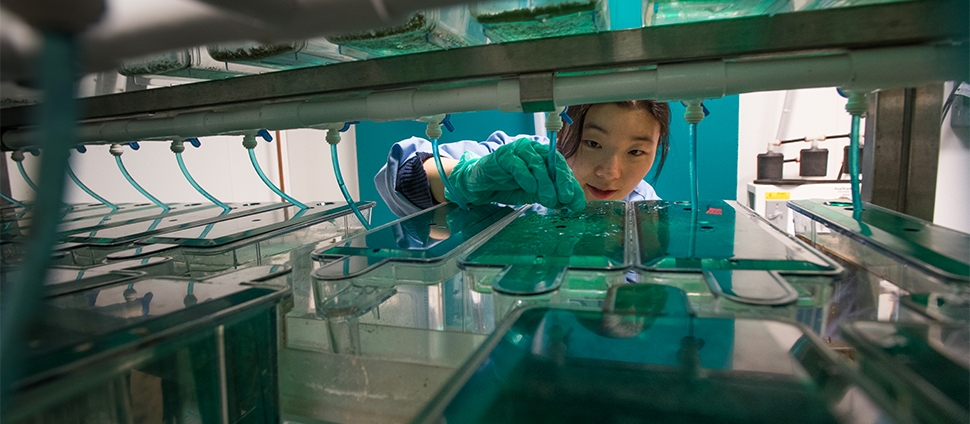Document Type
Book Chapter
Publication Date
2016
Publication Title
Biological Nitrogen Fixation / edited by Frans J. de Bruijn
Abstract
For agricultural purposes, drought related stresses negatively affect the Rhizobiaceae in at least three ways. Firstly, rhizobial populations are affected by desertification of agricultural soils. Secondly, the quality of dry-base inocula, also called formula, is negatively affected by a drying step, and thirdly, rhizosphere bacteria protect crop-plants against drought. Although survival of cultivatable bacteria has been studied intensively in dry-base seed inocula and in-vitro, thus far research has only marginally addressed the bacterial cell, its cellular structures and physiology. Many questions remain regarding the sensing of and physiological response of rhizobia to desiccation. This review will focus on the three different fractions of cells after desiccation, the membrane compromised cells, the viable but not culturable cells and the culturable cells.
Creative Commons License

This work is licensed under a Creative Commons Attribution 4.0 International License.
Rights
Licensed to Smith College and distributed CC-BY under the Smith College Faculty Open Access Policy.
Version
Author's Accepted Manuscript
Recommended Citation
Vriezen, Jan A.C. and de Bruijn, Frans J., "Appearance of Membrane Compromised, Viable But Not Culturable and Culturable Rhizobial Cells as a Consequence of Desiccation" (2016). Biological Sciences: Faculty Publications, Smith College, Northampton, MA.
https://scholarworks.smith.edu/bio_facpubs/54



Comments
Chapter 96 from the book Biological Nitrogen Fixation / edited by Frans J. de Bruijn